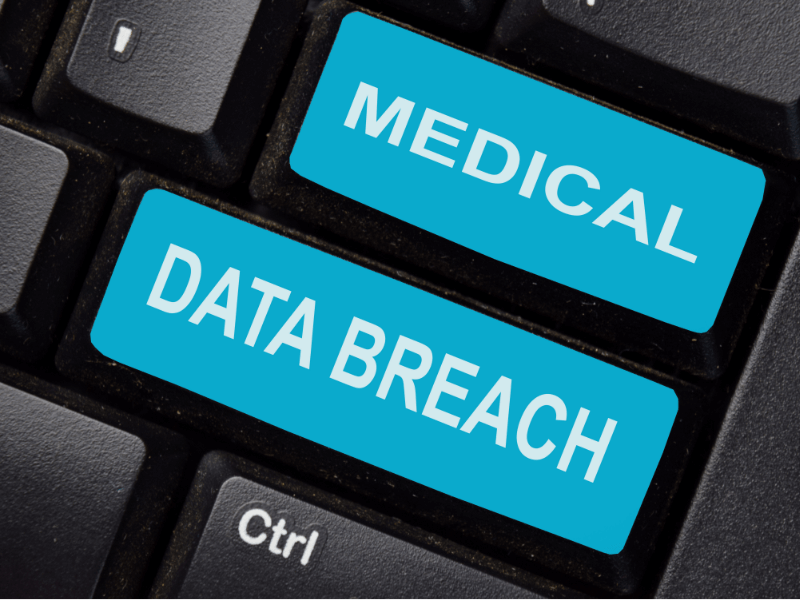Recommendations for Medical Industry
Cybersecurity has been a widely discussed topic in the last two years, especially with the growing number of attacks on businesses.
Many businesses have become wiser about the threats they face in this Industry 4.0 and implement a cybersecurity action plan to protect their interests.
However, the fact remains that even now, most businesses are unprotected and vulnerable to cyberattacks. In fact, most businesses use decades-old internet security protocols provided by their IT providers, leading to major security breaches.
The problems become even more significant in the healthcare industry due to the sensitive data they handle. Even the FBI treats the problem seriously and they have recommended a list of actions that healthcare executives must take to protect their network and IT systems.
If you are an executive in the healthcare industry, you must work on the recommended steps to ensure your systems are well-protected. Any data breach due to negligence can result in severe penalties for the organization.
Cyber Threats in Healthcare Industry
The healthcare industry is one of the most lucrative targets for cyberattackers, due to the type and extent of data it handles. Medical organizations deal with the private data of every individual, including personal information, health history, and financial data.
Every individual values their privacy and medical data. Attackers realize this, so they use the most advanced technologies to breach the data of medical companies and extract this information.
Additionally, the bigger problem is that most healthcare organizations are very each to breach. This is because of their outdated cybersecurity practices along with the lack of security patches in medical equipment software.
FBI’s Recommendations For Healthcare Industry
Before we start explaining the details of FBI recommendations, it is important to understand that implementing these recommendations is not a DIY task. All the recommendations are fairly technical in nature and require a deep understanding of IT systems and cybersecurity.
To get the most out of these recommendations and implement them properly, it is best to leave the task with medical cybersecurity professionals such as Tekkis Cybersecurity.
Tekkis Cybersecurity has been providing medical IT security services for the last two decades. If you would like to learn more about how Tekkis can help you, schedule a free online consultation appointment.
Recommendation #1: Endpoint Protection
We have covered Endpoint Security in detail along with how it differs from network security. FBI echoes our emphasis on endpoint security too, mentioning it topmost in its list of recommendations for the medical industry. Some pointers for securing medical endpoints are:
- There is a requirement for extra layers of protection and encryption for all the data that is stored on the endpoint medical device or travels through it.
- All medical devices that support antivirus and firewall security solutions should have these solutions installed. In case the device does not support installing any security solution, it is important to verify the integrity of the device whenever it is disconnected and reconnected to the network.
- Include security solutions that can detect any intrusion on the endpoints. Some common types of solutions are Endpoint Detection and Response (EDR) and Extended Detection and Response (XDR).
Recommendation #2: Controls and Access Management
Usernames and passwords of employees are the keys to your organization’s network. A proper access management protocol is important to ensure that these keys are well guarded. Sometimes, attackers can gain these credentials with attacks such as phishing. Following proper access management also helps in minimizing damage in case of a successful cyberattack.
- Change default passwords at the earliest to complex and secure passwords at the earliest. The user credentials for various employees should be unique in the organization. Avoid patterns and make the passwords specific to the particular medical equipment.
- Enable a protocol that limits the number of wrong login attempts per user. This makes the device protected against brute-force cyberattacks.
Recommendation #3: Asset Management
Asset management is one of the things that is highly missing in all medical organizations. Here are asset management tips that you should follow:
- Create a digital inventory of all assets in the organization and update the list regularly. This list should include all hardware devices, installed software, operating systems, and software versions. Highlight all critical devices. Mention the maintenance and update schedule of each asset and follow the schedule timely.
- In case any medical device is breached by a cyberattack, prioritize replacing the medical device. In case it is not possible to replace the medical device, monitor the data that travels through the device or remove it from the network entirely.
Recommendation #4: Vulnerability Management
Vulnerabilities are discovered loopholes in the medical device, software, or operating system. Here are the FBI’s recommendations concerning the management of vulnerabilities in medical equipment:
- In case anyone in your organization discovers a vulnerability in a medical device or software, it is important to notify the manufacturer/developer. Once notified, the manufacturer will take the necessary steps to fix the vulnerability and it will benefit you to cooperate with them.
- When employing any new medical device or software, carefully go through the disclosures released by the manufacturer with the equipment. These disclosures will inform you about the vulnerabilities in the device and the software.
- FBI recommends conducting your independent vulnerability assessments on the devices and software. Tekkis can help you in this regard with periodic IT audit reports.
Recommendation #5: Staff Training
Staff training is another crucial aspect that Tekkis Cybersecurity highlights in every IT security recommendation. FBI report has also agreed with this recommendation, and mentioned the following helpful tips in this regard:
- Train every employee on how to detect a cyberattack, take necessary urgent action against it and report it at the earliest.
- The employees should be trained to detect insider threats too. Insider threats are people that aim to harm the organization intentionally by disrupting the network or stealing the data.
- Phishing is one of the most common types of attacks on employees. Most employees don't find out about it until it is too late. Even the few employees that detect it never report it. Train your employees on how to detect phishing attacks and report them to the required person.
- Employ email filters and email alert banners when interacting with parties outside the organization via email.
Endnotes
Expert cybersecurity professionals such as Tekkis Cybersecurity can easily implement the security recommendations of the FBI, along with many other added security measures.
With Tekkis, the particular security measures for you are tailored to your organization's needs, scale, and application. Tekkis does a thorough assessment of the situation before sticking you with shelf products that are neither value for money nor offer adequate protection.
To find out how to proceed with your company’s cybersecurity initiative, get in touch with Tekkis today.



